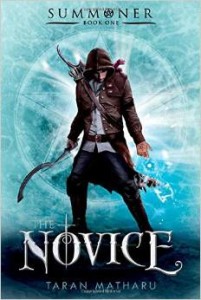 As much as I love Amazon, I have been having problems with them for quite awhile. My reviews keep vanishing, particularly for indie books (but not just indie books). And when I have tried to get them reinstated, they insist that I know the author and thus that invalidates my review. I have been trying to get this fixed for awhile, but I’ve decided that my reviews will now focus primarily on my blog. That doesn’t mean I won’t keep trying. I know that Amazon reviews, in particular, are gold for the authors.
As much as I love Amazon, I have been having problems with them for quite awhile. My reviews keep vanishing, particularly for indie books (but not just indie books). And when I have tried to get them reinstated, they insist that I know the author and thus that invalidates my review. I have been trying to get this fixed for awhile, but I’ve decided that my reviews will now focus primarily on my blog. That doesn’t mean I won’t keep trying. I know that Amazon reviews, in particular, are gold for the authors.
So to all my author friends, my apologies for the delay. I have posted Amazon reviews for many of you, but of the 80 reviews I wrote for this year alone, the vast majority have vanished. (I suspect it may be because, starting in January, I started putting disclaimers of potential biases relevant to the book
So I’ll start trotting these reviews back out now, thank you very much. And we are going to start with a written review of Taran Matharu’s Summoner Novice. Now I already reviewed this one on Talk Story to Me, but I promised a written one. Let’s prepare to dig a little deeper.
Short Summary of Review
A well crafted fast fantasy epic that is easy to read and perfect for young middle grade and older. High rereadable and great for reading aloud.
Disclosure of Potential Biases
I met Taran Matharu through Wattpad before his novel was accepted for publication, and I consider him one of my writing friends. However, as my friends will tell you, that doesn’t mean I love everything they do. Also he sent me an ARC for a fair and unbiased review.
Additional biases: I love fantasy.
Added perspective: the other copy I bought has vanished from my home. My teens and tutees keep borrowing it, and so far they all love it.
World Building
Fantasy is becoming an increasingly difficult genre to write in, at least if you go by what the critics have to say. One of the most common complaints I hear is “oh, heavens, look, another book with witches, werewolves, vampires, sorcerers, elves, dwarves,” or whatever else. Allow me to get something off my chest right here and now: that is not going to change. Whining about it and pretending that authors who do use these elements are somehow lazy is misguided. You don’t have to like it, but that doesn’t mean that the author failed or that there’s something wrong with using classic fantasy races.
What matters is how the story is told and whether the reader wants to keep going. So Taran isn’t going to get any markdowns from me because this book features orcs, elves, dwarves, and so on. In fact some of the twists and developments work because the reader is familiar with the common stereotypes and tropes associated with these races. It’s an easy starting point. Young readers, in particular, or those readers who don’t have a lot of time to invest in a lot of new knowledge, have a cheat sheet if you will.
Let’s take the dwarves for example. Many of the core elements of the dwarves remain in place. They are short, stout, and fiery tempered. They work with metal, and they are secretive. But the dwarves in Summoner: Novice are quite distinct from dwarves in Dungeons and Dragons and Lord of the Rings. Taran Matharu has his own reasons for why dwarf women are rarely seen, and the dwarves themselves have a complex culture and even a heavily spiritual focus. The customs and interplay of culture take something quite familiar and gradually alters the reader’s perception of it. The dwarves are my favorite culture represented so far, though the series is not yet finished. In future books, I hope to see the elves, orcs, and other races developed more.
Good Guys
Not only is Othello one of my favorite Shakespearen plays, but he is also my favorite character in Summoner: Novice. Othello is brave but calm and steadfast. He also demonstrates the importance of growth and handling conflict in an appropriate manner.
Minor Spoiler: throughout the book, we see Othello has conflict with his brother, Attila. He loves his brother. Because they are identical twins, he gets the same tattoos and markings as Attila to ensure that they cannot be told apart. Dwarves are frequently targeted, and racism worse than pre Civil Rights movement in the United States for people like the dwarves. Attila makes a number of bad choices, and he relies, to a certain extent, on Othello covering for him. Eventually that comes to a head, and Othello has to decide whether to keep covering for his brother.
Fletcher, the main character, is a fairly typical fantasy protagonist. But, as with the dwarves, I found the familiarity was used to keep the reader comfortable while drawing in more and more details. Fletcher grows as an individual, but more importantly, Taran Matharu subtly explores the concept of the “other” in this far better than in most. Fletcher does not fit into his community. He is an easy target because he is clearly different. And, while he makes friends when he leaves, he never fully escapes that.
In an interview, Taran Matharu discusses how his own experiences with racism and bullying shaped this novel. I see this coming through most clearly with Fletcher and Othello. In fact, their friendship, which develops swiftly, seems to be based on this shared understanding, though it is not explicitly discussed. Fletcher doesn’t try to equate what he has experienced with what Othello has endured, and several scenes would, in my opinion, be quite good for initiating discussions with younger students about racism, its impacts, and cultural structures.
Minor Spoiler: One of the things I appreciated is that while Fletcher is more powerful than the average commoner who has summoning abilities, he is not the most powerful student. He still has room for growth, and he struggles at various points. In fact, he strikes me as being a largely B level student.
Bad Guys
So, villains are so often crucial for me. The villains in this case are pretty stock. Various baddies show up, and they are generic. You identify them. It’s not surprising who they are. And Taran Matharu doesn’t put in any twists here, though, in all fairness, fully developing the villains and making them more sympathetic would have probably unbalanced the story. Plus these villains are the kind of villains you love to hate. Rook, in particular, is absolutely despicable. I swear the man probably eats kittens for breakfast with the dried tears of orphans as his breakfast aperitif.
That didn’t detract from the story for me. I didn’t find myself wanting to know more about Tarquin or Isadora or Rook or any of the others. Sure, they were what you’ve seen before, but sometimes it’s nice to not have to deal with constant shades of grey. Sometimes it’s just nice to know that you can confidently dislike people. There really are terrible people out there. Not every horrible person is a thick wall with a broken heart quivering in a crystal bowl. Plus there are some other characters who are gruff or who are initially misunderstood, and they are more explored. The bad guys are not presented as bad guys just because they were a certain type of person. They earned their baddie badges.
So while the bad guys didn’t stand out for me, they didn’t take away from the story either. I think it was a tradeoff, and a valid one.
Magic
Magic may not be necessary in a fantasy epic, but Taran Matharu brings his own fun twist to the powers in this world. Not everyone has the gift, but those that do can summon demons from the ether. It’s a complex system with rules similar but distinct from Pokemon and Magic. And Taran has added some fun twists that reminded me of modern video games. There’s a lot of familiar and unique faces. Hydras and wendigos show up at points, but there are also unique ones known as shrikes and fire salamanders like Ignatius (who steals the show; I swear Ignatius has a cat spirit).
To my readers who are worried, don’t worry. These demons aren’t the minions of Satan or the legions of darkness. They are actually just monsters that can be tamed. Oddly, this is in line with a number of early translations where, when a creature was a monster, it was translated simply as “demon.” There’s lots of reasons for this, and part of it was to signify that you probably shouldn’t go petting it or trying to cuddle. And I wouldn’t recommend that you pet any of the summoned demons here on the head. However, in terms of good and evil, they’re fairly neutral. Their capabilities much like the summoning power itself can be used for good or evil.
Pacing
I don’t have too much to say on this, but it’s an important point for every story. The story starts off quickly, and it keeps going. I didn’t find myself getting tired, and I read it easily in an afternoon. Nor was I bored. It was easy to stay engaged with the story. If you had to set it down for awhile, I don’t think you’d have a problem picking up right where you left off.
Ending
Overall, it was a satisfying story. It does deal with consequences, and while many things are dealt with, Fletcher’s past does catch up with him. And it does end with a cliffhanger. There was a very satisfying battle, and then boom! But this wasn’t a case of the author wrapping the book up too quickly. It is labeled as a series, and there is a sequel coming out in 2016, which will be great. And I can’t wait to see what happens.
Overall Consensus
Yes. This novel has definitive rereadability. I enjoyed it the first time, and I enjoyed it even more the second time. I’ll probably read it a third.
This was an enjoyable fantasy epic. I didn’t have any major problems with it, and I enjoyed the experience. This book did just what fantasy is supposed to. It takes you off to a new world, introduces you to some fun friends, and offers you a good time. And even though this is Taran Matharu’s first published novel and it is quite good, I’m thrilled to see how he continues to grow and develop. Because it’s going to be great.


